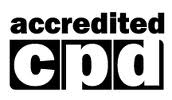This session will provide in-house counsel with an overview of the key issues they need to know about the duty of good faith in the context of employment law, contract law, and business law.
The Duty of Good Faith in the Manner of Dismissal
An understanding of the duty of good faith in the manner of dismissal begins with Honda v. Keays, where the Supreme Court of Canada held that the employer has an obligation of good faith and fair dealing in the manner of dismissing an employee. The first portion will canvass the law on the duty of good faith in the manner of dismissal – starting with Honda and moving on to discuss the long and winding road of “moral damages” and what in-house counsel need to know.
- Dealing with unrepresented employees and individually named defendants
In-house counsel providing advice in connection with the dismissal of employees will often be required to interact with unrepresented individuals. A dismissed employee may try to claim personally against a fellow employee or manager at the Company. Presenters will offer guidance in dealing with the unrepresented employee and individually named defendants in accordance with the Rules of Professional Conduct and in identifying, avoiding and addressing potential conflicts of interest in those contexts.
The Duty of Good Faith in Commercial Contracts
The second portion will canvass the law on the duty of good faith in commercial contracts – starting with the Court of Appeal’s leading decision in Transamerica Life Canada Inc. v. ING Canada Inc. and explaining the key themes that have shaped the evolution of the law of good faith.
The Duty of Good Faith in Action
The third portion will examine practical applications of the duty of good faith, including in the shareholder and oppression law contexts (which often arise in employment and non-employment settings alike), the business litigation context, and in the context of the scope of duties owed by pension plan sponsors and administrators.
- Who is your client?
In-house counsel advising about shareholder and oppression law, business litigation and pension and benefit plan matters will often be required to address conflicts of interest in retaining external counsel, providing advice to their clients, or even acting as a member of committees or boards. Presenters will offer guidance in identifying, avoiding and addressing conflicts of interest in those contexts.
 |
This program has been accredited by the Law Society for 0.5 Professionalism Hour |
